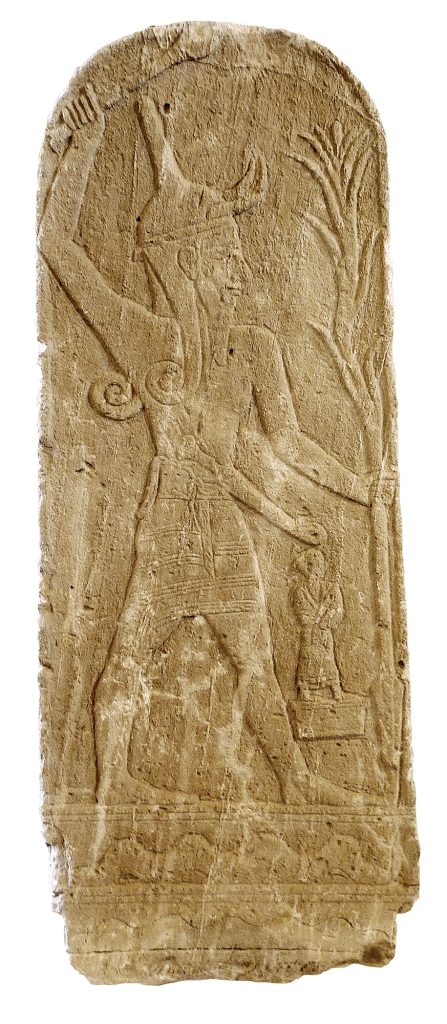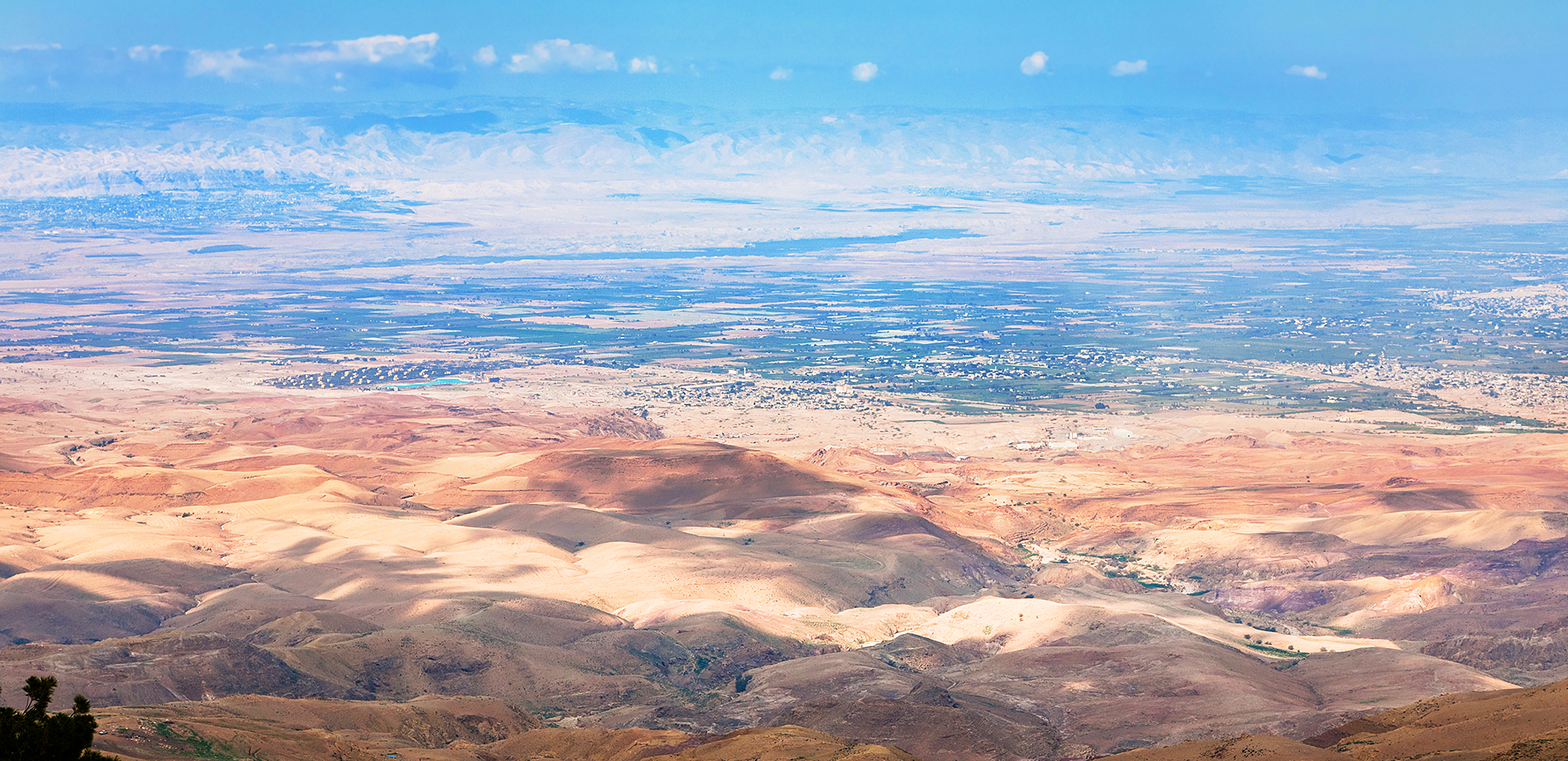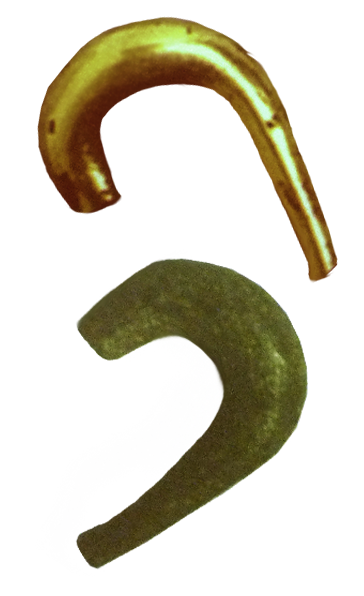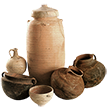
Bible, History, Archaeology
Bible,
History,
Archaeology
Violence by the tribes of Israel
on the Canaanites during the conquest of Canaan
Bible references concerned
Three essential readings for a good understanding of this sensitive subject:
1 ... When you approach a city to attack it, offer it peace. If it answers you with peace and opens its gates to you, all the people there will be tributary to you and enslaved. If it refuses to make peace with you and makes war against you, then you shall besiege it, and the Lord your God shall deliver it into your hands, and you shall put all its males to the sword. But the women, the children, the cattle, all that is in the city, all its spoil, you shall plunder and eat the spoil taken from your enemies that the Lord your God has delivered into your hands. And so you shall do with all the cities that are very far from you, which are not among the cities of these nations.
But in the cities of these peoples, whose inheritance the LORD your God is giving you, you shall not let anything that breathes live. For you shall utterly destroy them, the Hittites, the Amorites, the Canaanites, the Perizzites, the Hivites and the Jebusites, as the LORD your God has commanded you, so that they do not teach you to imitate all the horrors they do for their gods and to sin against the LORD your God... (Deuteronomy 20, 10-18).
2 .... The Lord spoke to Moses in the plains of Moab near the Jordan, opposite Jericho. He said: Speak to the children of Israel, and say to them: When you have passed over the Jordan into the land of Canaan, you shall dispossess all the inhabitants of the land before you, and destroy all their stone idols, and all their molten metal images, and all their high places. And you shall take possession of the land and dwell therein; for I have given you the land, that it may be your possession [...] But if you do not put the inhabitants of the land before you, those of them whom you leave behind shall be like thorns in your eyes and prickles in your sides; they shall be your adversaries in the land where you go to dwell. And it will come to pass that I will treat you as I had resolved to treat them... (Numbers 33:50-56).
3 ... When you enter the land which the Lord your God is giving you, you must not learn to imitate the abominations of those nations. Let no one be found among you who makes his son or daughter pass through the fire, no one who practices the profession of diviner, astrologer, augur, magician, enchanter, no one who consults those who evoke spirits or tell fortunes, no one who questions the dead. For whoever does these things is an abomination to the Lord; and because of these abominations the Lord your God will drive out these nations from before you. You will be entirely the Lord your God's. For these nations, whom you will drive out, listen to astrologers and soothsayers; but the Lord your God will not allow you to do so... (Deuteronomy 18, 9-13).
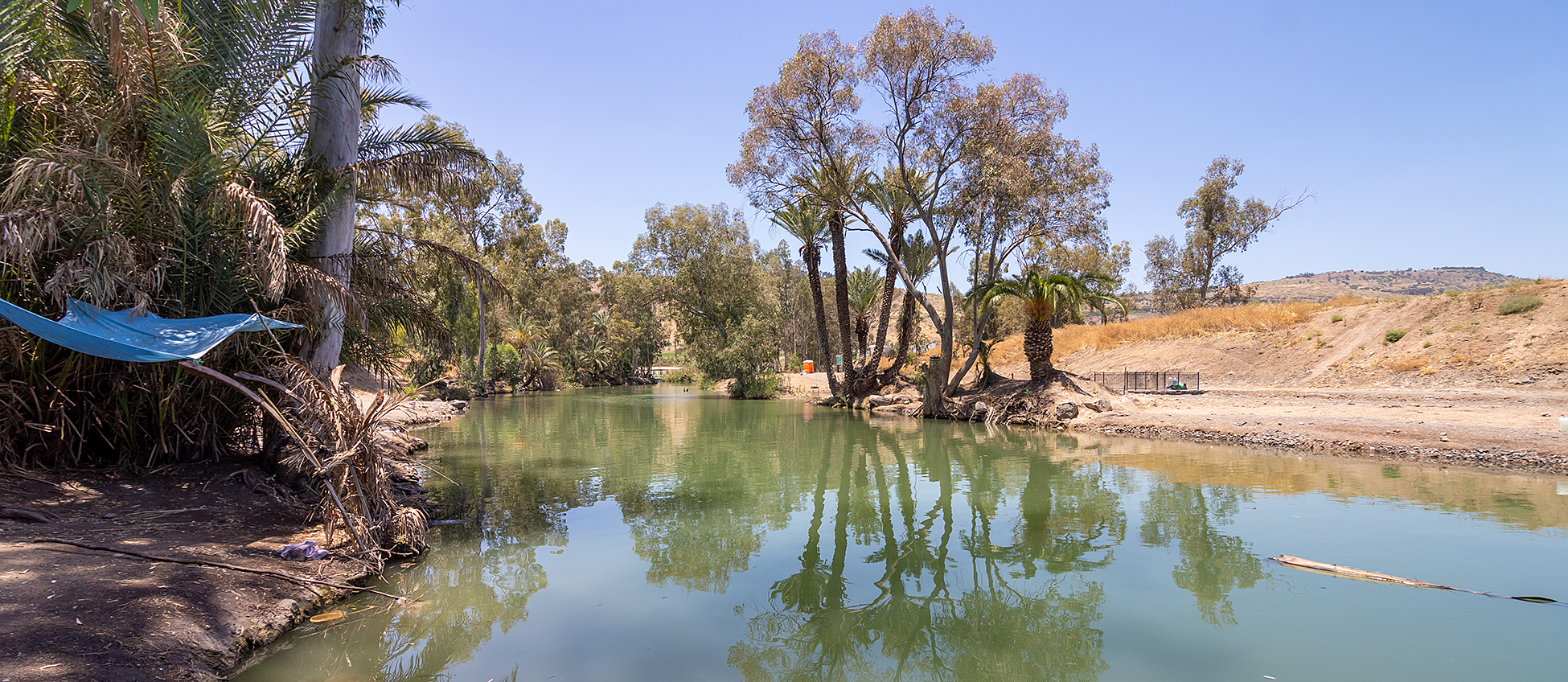
A view of the Jordan River today (detail).
The Jordan River (Arabic: نهر الأردن Nahr al-Urdun which means to go down, in Hebrew ירד Yarad, but also נהר הירדן, Nehar haYarden which means the «River of Punishment, of Judgment») is a river that flows 360 km from Mount Hermon in Lebanon to the Dead Sea. Its valley is the lowest in the world, flowing into the Dead Sea at an altitude of 421 metres below sea level. @ yosefus 1746023936.
Beforehand
Before turning to the historical context of the conquest of Canaan, what are the parameters that connote the Lord's criteria? First, a universal attitude towards sin and sinners, sanctioning sin but offering salvation through faith and the sacrifice of an atoning victim; then objectivity and impartiality even towards Israel, which was not always approved.
Finally, the declaration in Deuteronomy 20:10-18 has more to do with God's omniscience and foreknowledge than with obligation. Indeed, God, knowing in advance that many will not accept the offer of peace, declares these things in the future tense rather than the imperative.
Dating
The earliest archaeological evidence of the conquest of Canaan dates back to the late 13th century BC (Late Bronze or Early Iron I). This is generally considered to be the period of Israel's emergence, although a minority of researchers (Wood, 1990) date it to an earlier period, the 15th or 14th century BC (Late Bronze Age).
IMPORTANT NOTE: WHEN READING THE TEXTS, KEEP IN MIND THE MORES OF THE TIME.
the stages of conquest transmitted by the Bible
The people of Israel begin their march to Canaan under the leadership of Moses. They come up against the Canaanite king of Arad, who gives battle to them but is finally defeated at Horma. Israel forbiddingly ... them and their cities... ».
The people of Israel bypass the land of Edom (Numbers 21:3-4). They confronted Sihon, king of the Amorites, who forbade them to pass through his territory. « Israel struck him with the edge of the sword and took his country from the Arnon to the Jabbok. […] and settled in all the cities of the Amorites... » (Numbers 21:24-25).
Children of Israel« are now encamped in the plains of Moab, beyond the Jordan, opposite Jericho. »(Numbers 22:1). The Hebrews« contact with the Moabites leads to " debauchery with the daughters of Moab; they invited the people to the sacrifices of their gods, and the people ate, and worshipped their gods... »(Numbers 25:1-2). The Lord's punishment was terrible and immediate: the Hebrews who had compromised with the Moabites and Midianites were executed (Numbers 25:4; 25:16).
Image opposite: a stele representing one of the Canaanite deities, «Baal with thunderbolt». Théo Truschel/Musée du Louvre.
After Moses' death on Mount Nebo, Joshua took the lead (Numbers 27:15-23).
After terrible reprisals against the Midianites (Numbers 31), the people of Israel now reached the eastern bank of the Jordan, opposite Jericho.
Joshua sends two spies who are hidden by Rahab, the prostitute. The city is taken and burned, along with everything in it. Only Rahab and her family are saved, according to the promise made to her. The city of Ai suffered the same terrible fate as Jericho (Joshua 8) and, following the conquest of Canaan, Israel's enemies were treated in the same way (Joshua 10). So it is with the five kings who try to hide out in a cave at Makkedah (Joshua 5:24), the city of Libnah with its king, as well as Lachish, Gezer, Eglon, Hebron and so on. All these cities were struck by the «sword of the Lord".« sword edge »(Joshua 10:35).
Readers, whether believers or not, remain perplexed - not to say shocked - by this outpouring of violence against the Canaanite peoples.
Where is God's patience and mercy?
Even a reading studied in the context of the mores of the time raises questions that believers themselves seem powerless to answer.
A panoramic view of Canaan today as seen from the summit of Mount Nebo. © vvoe 98271245.
Why this bloody conquest?
Israel's status
The conquest is the result of a promise: the Lord reminds Abraham that he is giving this land to him and his descendants, that the people of Israel will be enslaved and oppressed for 400 years, but in the fourth generation they will return here (Genesis 15,16).. Verses 19 to 21 give the list of the seven peoples of Canaan. So the Canaanite civilization had to deteriorate to such an extent that Israel took its place.
The nature of Israel: a chosen people
God chose Israel, an insignificant little people«.« you are the least numerous of all peoples »but a people available for God's project, which is the message of monotheism.. So he says: « it is you whom I have loved among all the families of the earth »(Amos 3:2) and again: « for you are a people holy to the’LORD your God, and you have chosen the’LORD your God »(Deuteronomy 7:6-9). The word holy, kaddoch, means consecrated, or elsewhere, segoula, A special people, set apart. The Jewish people were never a people of saints, but they were consecrated collectively as a people. This consecration sets them apart from ordinary people. The condition is the obligation to observe the Law and the revelation it proclaims. This is the commitment made by the people at Sinai when Moses received the message. In Jewish tradition, God proposed the Law to all peoples, but only the people of Israel accepted it.
Image opposite: two gold and silver earrings uncovered in the Hebraic altar on Mount Ebal site, University of Haifa/Adam Zertal (1936-2015), awith his kind permission.
A land of paganism
This commitment is fragile, as many episodes show (the golden calf, idolatry in the plains of Moab...) and sanctions also fall on Israel; this is the other side of the election coin: «Only you have I loved, therefore I will punish you for all your sins».» (Amos 3:2).
God says: « It's not because you're righteous... but because of the wickedness of these peoples and in order to fulfill the word sworn to your ancestors... (Deuteronomy 9, 4-5).
Archaeological discoveries tell us that the various Canaanite peoples frequently sacrificed children during epidemics and sieges. One of the most horrifying accounts is given in the story of Mesha, king of Moab (2 Kings 3:26). A coalition of the kings of Israel and Judah attacked Mesha, who, seeing that he had the upper hand «... in the battle, took his firstborn son, who was to reign in his place, and offered him as a burnt offering on the wall. […] ».
Canaan is spiritually the land of all dangers. Religious practices, from the multiplicity of idols to debauchery and human sacrifices by fire (the rite of Moloch), and a very low moral standard, were likely to lead Israel: « don't go corrupting yourself... »(Deuteronomy 4:16-20). The Promised Land was a land of idols, and a major obstacle on the road to monotheism. Moreover, Moses is aware that idolatry will be Israel's chronic evil, and that punishment will come later in the form of exile (Deuteronomy 4:27).
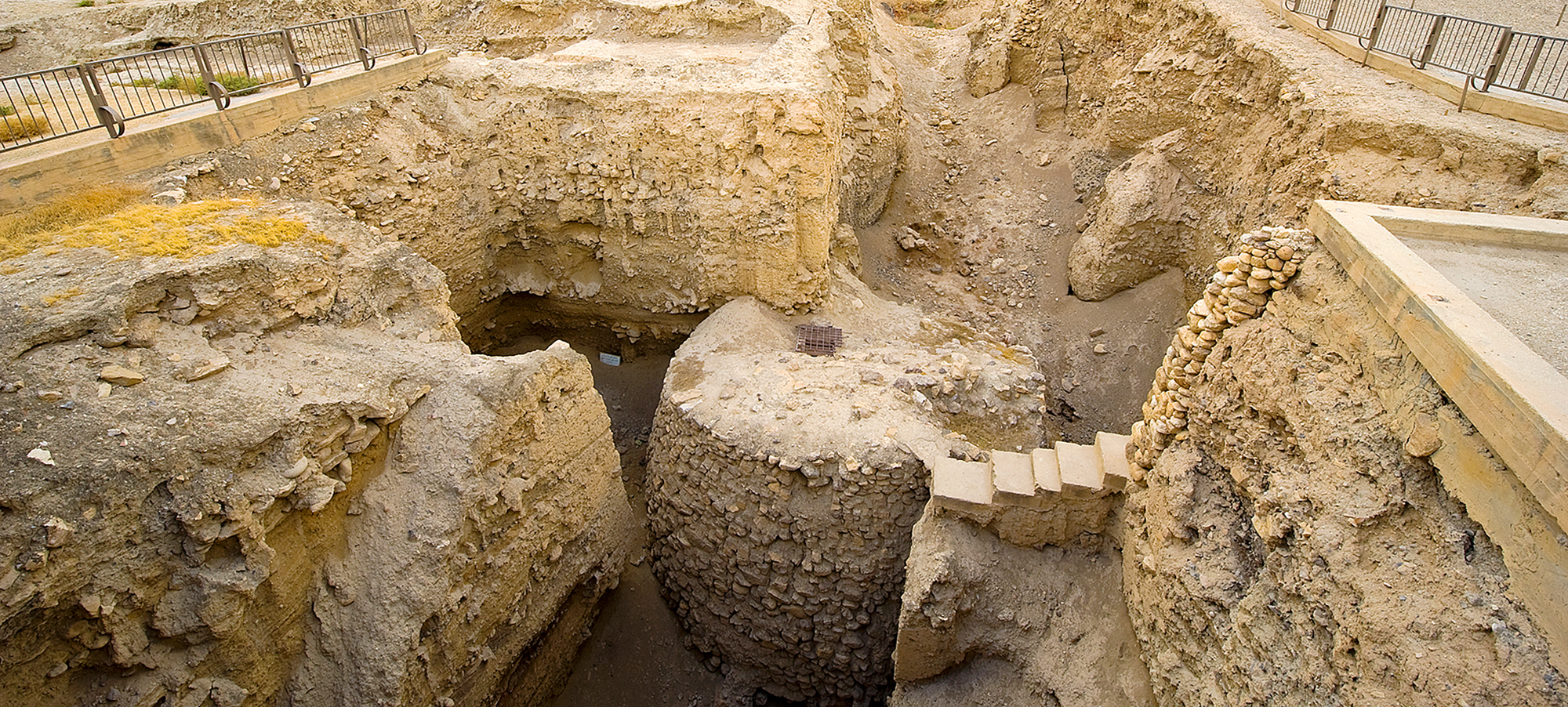
A view of the ancient ruins and walls of the Tell es-Sultan site, better known to some as those of the city of Jericho at the time of the conquest. © Robert Hoetink 280109147.
Requirements to be met
The Eternal communicated to Moses a whole series of prescriptions that the people were to implement during the conquest: destroy idols and places of worship, do not profit from goods consecrated to local gods (practice of the forbidden) (Joshua 6:17-19), no mixed marriages, no astrology, no evocation of the dead, no mortuary rites such as scarification and rejection of human sacrifices (Deuteronomy 18:10-14). The rejection of these pagan rites should prevent any form of syncretism, for : «... it is because of these abominations that the’LORD your God, drive out these nations before you... »(Deuteronomy 18:12).
Historical background
In the context of these civilizations, entire families are considered jointly and severally, so no one is spared (this also applies to Israel when Akan and his family are punished for not having respected the ban (Joshua 7). Idolatry, image worship and other forms of paganism were inherent to the Canaanite way of life; the survivors would have perpetuated these practices, at the risk of corrupting the people of Israel through assimilation.
A patient God who shows mercy
A promise to Abraham
the Lord reminds Abraham that he is giving this land to him and his descendants, but only in the fourth generation, 400 years later«.« for the iniquity of the Amorites is not yet at its height »(Genesis 15:16). This text shows us God's patience with the Gentiles.
A God who spares
An important reminder: when Rahab, the prostitute, welcomes the two spies sent by Joshua into her home, her words are eloquent (Joshua 2:9-10): she explicitly admits that «... is the’Eternal, […] who is God above and below on earth... ». All the inhabitants of Jericho had the possibility, like Rahab, of making the same choice of recognizing the God of Israel as the only true God, of fearing the power of the Lord instead of wanting to put the two spies to death.
The choice of Rahab made her the ancestress of King David. She belongs to the Messianic lineage mentioned in the two genealogies of Matthew (1:5-6) and Luke (3:31-32).
According to tradition, Joshua offered the Canaanites three options: leave the country, submit, wage war (Midrash Rabah). The code of war demanded that the opponent be given a chance to escape, and a city was to be besieged from no more than three sides. Seven peoples However, neither Joshua nor his successors carried out the extermination order to the letter, and the people of the Gibeonites, despite their lies, were saved (Joshua 9). We also know that many Canaanite populations remained after the conquest.
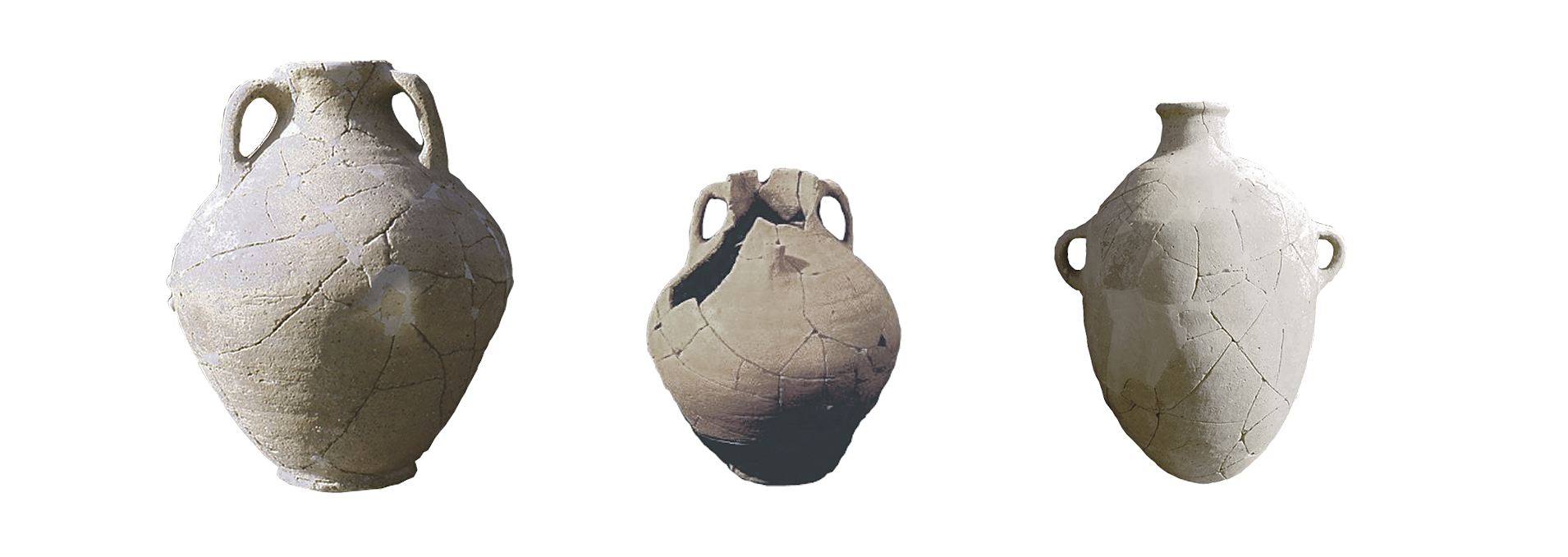
Various pottery models unearthed from the Hebrew altar on Mount Ebal by the team of Professor Adam Zertal (1936-2015) dates back to the 12th century B.C. © University of Haifa/Adam Zertal, with kind permission.
What does archaeology have to say?
Destruction
Archaeological evidence shows that a number of cities were violently destroyed during this period; the territory was made up of small city-states, whose division and weakness had been carefully nurtured by the Egyptians before the end of their domination at the end of the New Kingdom. The Israelites were nomads, capable of launching raids and taking cities by surprise, but they had no war chariots or siege machines, so the conquest of cities with solid walls was rare. Instead, the Hebrews infiltrated sparsely populated mountainous regions, settling in dozens of villages whose excavations in Samaria (the former territory of the tribe of Manasseh) have unearthed from artifacts typically Hebrew (Professor Adam Zertal, Department of Archaeology, University of Haifa). They spread out over distant territories (allocated to each of the twelve tribes) separated by non-Israelite islets that were not destroyed. This geographical specificity, among other things, preserved them from assimilation.
Summary
The Bible's account of the entry into Canaan emphasizes two fundamental aspects in numerous passages: firstly, the promise made to Israel, and secondly, the abomination of paganism to the holiness of God. Thus, when the Lord said to Abraham: « All the nations of the earth will be blessed in you... »(Genesis 12:3), the objective of the future conquest is clearly stated here. It heralds the salvation that is to come through a people preserved from idolatry. God chose Israel for this purpose, and its settlement in Canaan conditioned the coming of the Messiah and the offer of universal salvation.« to anyone who believes »(John 3:16) and not just to the Hebrews.

